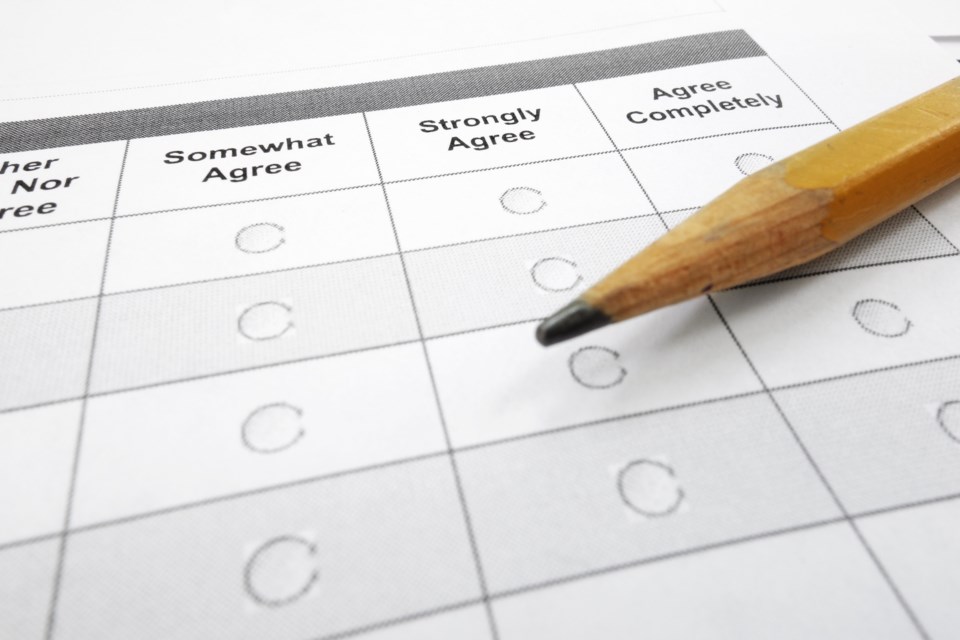Nearly 40 per cent of people who completed a City of Moose Jaw survey say they experienced job or income loss during the pandemic, compared to 11 per cent who faced no challenges whatsoever.
According to the survey’s results, of the 476 respondents, 65.17 per cent experienced reduced recreation and leisure activities, 37.82 per cent lost a job or income, 27.99 per cent had difficulty managing work or home priorities while juggling home-schooling, and 16.67 per cent had reduced transportation options.
Meanwhile, 11.11 per cent said they faced no challenges, while 14.32 per cent gave “other” as a reason.
The percentages do not add up to 100 since respondents could pick more than one option.
The query was part of a 24-question survey that city hall issued in mid-September that asked residents for feedback about 2022 budget priorities and Moose Jaw’s transit service.
A total of 476 people completed the survey, including 456 people who responded online and 20 respondents who completed a paper questionnaire.
The fact that nearly 500 people responded is significant since the last time city hall issued a budget survey in 2019, only 212 responses were received, city manager Jim Puffalt said during the Oct. 25 regular council meeting while discussing the survey results.
Meanwhile, when city hall contracted Insightrix to develop a survey in 2018 for curbside garbage collection, the company indicated that 400 responses were considered a representative sample of the community, he continued.
“Overall, (survey results show) there is support for the budgeting process we are doing,” Puffalt added.
The increase can be chalked up to a few things, explained communications manager Craig Hemingway. For example, city hall directly contacted user groups, city advisory committees and boards, seniors’ centres, retirement homes and community associations.
Other ways that city hall advertised the survey included through free and paid regular and social media ads, on the city website and its podcast, and through QR codes on buses and in bus shelters.
The responses were almost evenly split across age demographics, Hemingway continued. For example, roughly 17 per cent of participation came from the age groups of 25-34, 45-54, 55-64 and over 65. However, 27 per cent of respondents were in the 35-44 age group while four per cent were under age 25.
Hemingway then reviewed the results from the 24 questions.
For the budget-related questions, the results showed:
- 63.48 per cent want council to attract new businesses or support existing ones, 41.52 per cent want council to reduce spending, 39.13 want council to increase spending, while 30.22 per cent want to see capital spending maintained or increased
- Most people said roads were the most important spending goal, followed by water and wastewater, public safety, environmental services and economic development, city planning/development and parks/pathways and recreation services, and transit
- 45.3 per cent said the pandemic had not affected them and expected that to continue, 30.34 per cent said the pandemic negatively affected them and that was expected to continue, 16.24 per cent said the pandemic negatively affected them but expected their situation to improve, and 8.12 per cent said the pandemic did not negatively affect them but expected that to change
- 65.16 per cent said they favoured continuing the practice of a dedicated annual infrastructure levy, while 34.84 per cent were opposed
- 56.03 per cent said it was reasonable for the city to increase municipal taxes to recover inflationary costs, while 43.97 per cent were opposed
- If respondents managed the city, 52.89 per cent would slightly increase taxes, 25.91 per cent would increase taxes at a higher rate, and 21.20 per cent would reduce spending
- 60.92 per cent favour the current practice of using general tax revenues to offset the cost of the waterworks utility, whereas 39.08 per cent would adjust the utility rates to recover the full costs
- 47.84 per cent agreed with the current practice of setting recreation fees at a 50-per-cent cost recovery rate, while 36.42 per cent would increase user fees so less revenue is needed from taxes, and 15.73 per cent would decrease user fees so more tax funding is used
Council then voted to receive and file the report.
The Moose Jaw Express will have a separate story on the results for the transit-related questions.
The next regular council meeting is Monday, Nov. 8.




